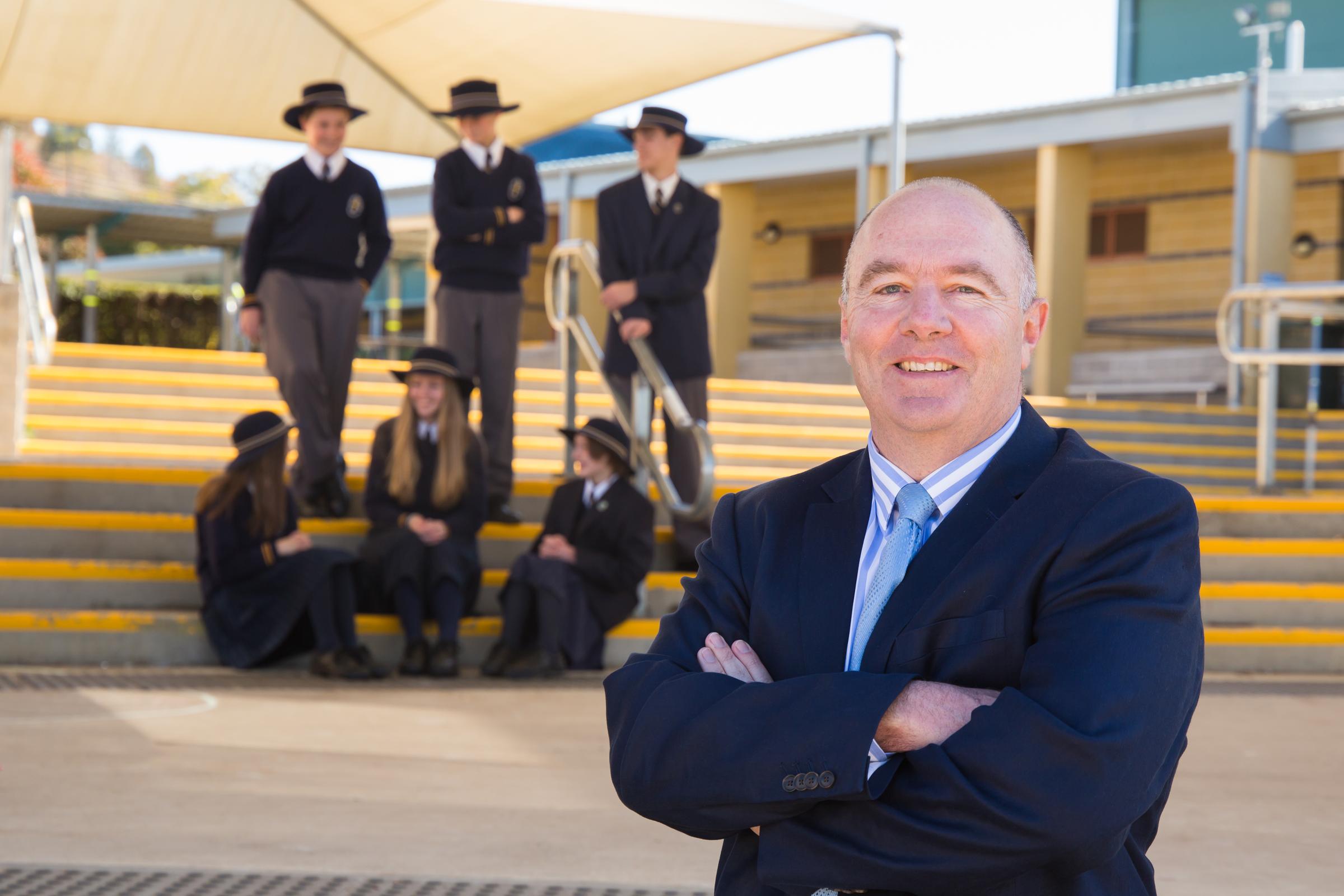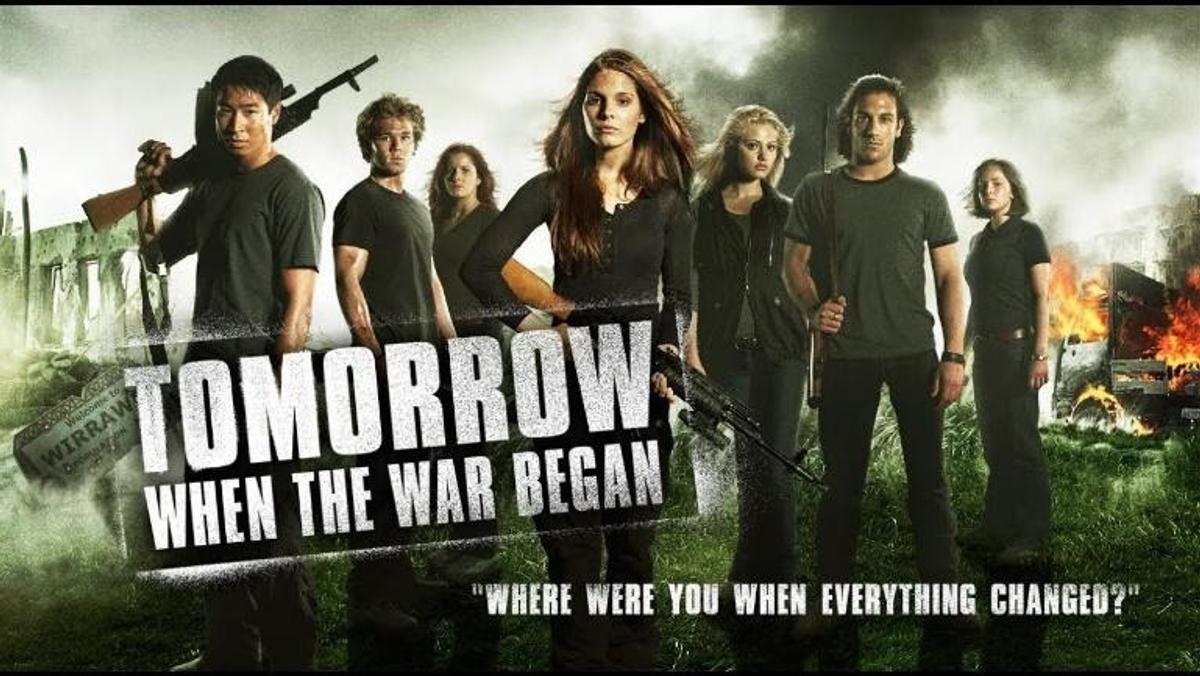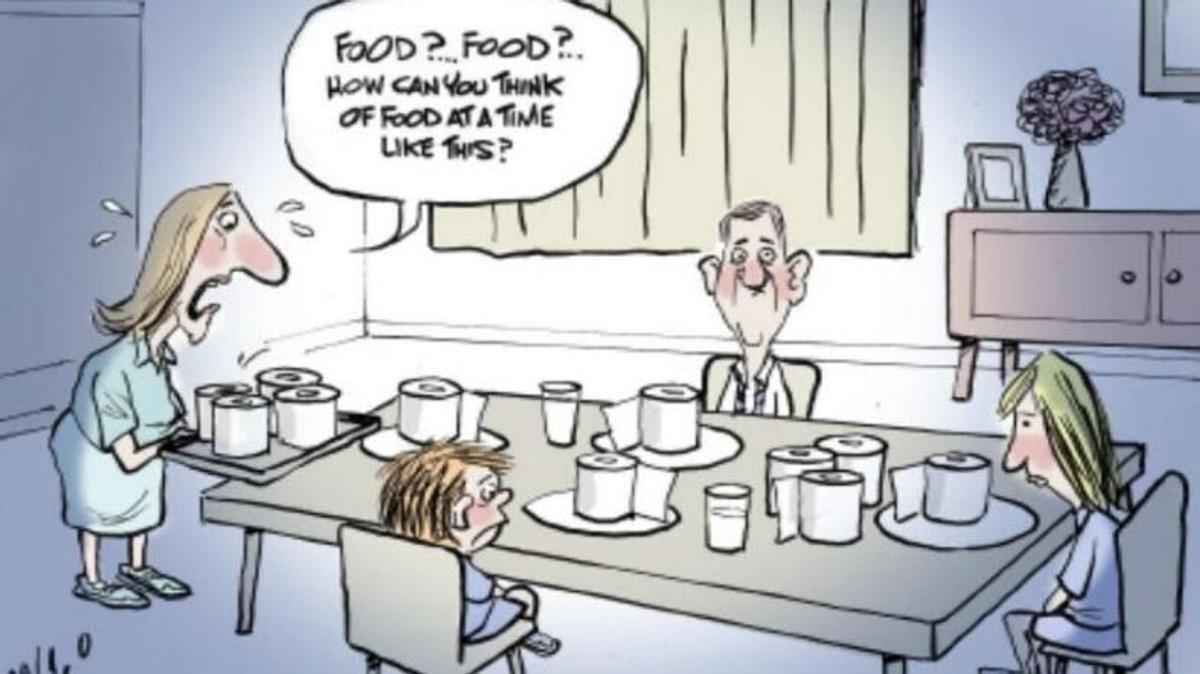Assistant Principal - Pastoral Care

Stretched by A New Experience
As we celebrate Anzac Day and reflect on the sacrifices made by previous generations and current service men and women, it does give pause for thought – how can we find relevance and meaning from their experiences in our own lives during a pandemic that is often described using metaphors of warfare and conflict?
In the USA, the generation who endured World War II have been widely labelled as ‘The Greatest Generation’. This recognizes not only the enormity of the conflict that took place but also the sacrifices made by the whole country to mobilise the resources required to defeat fascism in Europe and Asia. For many, it was seen as a defining moment in twentieth century history, when the ideologies that sought to deny freedom and democracy in the Western world were destroyed. The next fifty years ushered in a period of unprecedented growth and prosperity in the USA, hence the lionizing of ‘The Greatest Generation’ who made it all possible.
In 1993, the then Prime Minister, Paul Keating, delivered a remarkable speech in honour of the ‘Unknown Australian Soldier’ at the Australian War Memorial. Here, he articulated what this generation meant for us as a nation:
“For out of the war came a lesson which transcended the horror and tragedy and the inexcusable folly. It was a lesson about ordinary people – and the lesson was that they were not ordinary. On all sides they were the heroes of that war; not the generals and the politicians but the soldiers and sailors and nurses – those who taught us to endure hardship, to show courage, to be bold as well as resilient, to believe in ourselves, to stick together.”
This sentiment is echoed by Major Dick Winters (an American paratrooper immortalized in the mini-series Band of Brothers) when he wrote of the men he fought with: “Wars do not make men great, but they do bring out the greatness in good men.” It is clear that whilst these world wars were horrendous and devastating, for those who survived, some of the impacts were significant and lasting and positive.
So I have often found myself wondering that without such trial, such hardship in our lives how do we discover these qualities within ourselves? Do we become ‘Lesser Generations’ because of the long periods of peace and stability that we have been so fortunate to experience?
John Marsden explored this concept in his Tomorrow When the War Began series of young adult novels that were a publishing hit in the 1990s. Set during an invasion of contemporary Australia, Marsden’s seven novels focus on a group of teenagers who rise to the occasion and fight a guerilla campaign against the invaders. Marsden said that his novels gave young readers the chance to be heroes “a chance they just don’t get anymore … we’ve now constructed a society where teenagers have no chance at all to do anything brave or independent or daring. So instead, they’ll drive down the wrong side of the road at 90km an hour” (or binge drink or experiment with drugs).
Last year I wrote about the research of Professor Jonathan Haidt, a social psychologist from New York University who is concerned “about the threat posed not only to children, but to the rest of society by parental over-protection in the middle classes of the English-speaking world”. He went on to say, “Coddling is the determined effort by adults to deprive kids of feedback from their own experience and replace it with lectures," he told a forum at Sydney University. "'I will tell you what is right and wrong, and you will learn it that way'. When you deprive children of [unsupervised] play, you make them vulnerable to anxiety and depression because they fail to develop basic skills of self-regulation and interaction that will make them successful in life.”
At the moment, many parents are left asking how do we prepare a child for life in an uncertain world? At a time when anxiety is pervasive and a global pandemic has upended our lives, how can we raise our children to handle the stress, and even anguish, they’re sure to experience? Even before the coronavirus took hold, data suggested that the kids were not alright: From 2007 to 2017, suicides among 10-to-24-year-olds rose 56 percent, and suicides by children ages 5 to 11 have almost doubled in recent years (US statistics). Why is this happening, and what can be done for children overwhelmed by life?
In an article titled, ‘The Anxious Child, and the Crisis of Modern Parenting,’ Kate Julian reports on the rising presence of anxiety and depression in children, and how modern parenting both plays a role in the problem and may be the key to a solution. Interviewing dozens of therapists, researchers, and mental-health experts, Julian heard the same thing again and again: anxiety disorders in kids are well worth preventing, but anxiety itself is not something to be warded off. It’s an uncomfortable but universal response to stress that children must learn to tolerate in order to become healthy adults. And yet, Julian writes, parents today are doing the opposite: “Far too often, we insulate our children from distress and discomfort entirely. And children who don’t learn to cope with distress face a rough path to adulthood.”
So perhaps, this global pandemic is the trial our young people will endure that will shape their adulthood. Unlike previous generations that were called upon to travel thousands of miles to fight an external enemy, instead they will be asked to bunker down to resist an enemy that works from within. As we are all discovering, this new experience is generating challenges none of us had ever contemplated but I am consoled by the words of Brain Tracy “Every experience in your life is being orchestrated to teach you something you need to know to move forward.” So what can be gained?
For our young people (and potentially ourselves) this virus serves as a powerful reminder that hardship is integral to the human condition. That life and our way of life should not be taken for granted (I imagine that toilet paper will be the enduring metaphor that lasts from this crisis). That the experience of discomfort, of inconvenience, of frustration and for some, genuine suffering, are a crucible from which we can emerge stronger and more resilient and focused on what is really important in life.
For now, we protect others by staying at home and maintaining social isolation even though we are finding this incredibly tedious, suffocating and painful. This will require patience and the capacity to think of the needs of others ahead of self. Both worthwhile qualities to develop.
As students, learning will rely on each individual making themselves be involved and having actively engaged with each task. While we all have the right to learn, at times, many forget the responsibility they have in the process. Too often students want to abrogate this responsibility to ‘the teacher’ or ‘the school’ and blame any failure to progress on one or both of these. The current situation positions each individual student to accept their responsibility, whether they like it or not, for the learning that they do. Each individual needs to look inside themselves and find the tenacity to make themselves engage with the learning that needs to be done. And if students manage to develop this ‘learning character’ during this interruption, that will be a significant gain that will stay with them a lifetime. Once you have these qualities then you no longer need to worry about the ‘gaps’ that the media commentators are so focused upon because of the interruption.
This crisis to our culture provides an opportunity to discover the “greatness” within – to be better learners, better friends and better people – everyday. And if our young people embrace that, they will have as Oliver Wendell Holmes argued, “a mind that is stretched by a new experience that will never go back to its old dimensions.”
Postscript
Daniel Merza is a motivational speaker who has written an article that Year 12 parents might find interesting:
“In my latest article for parents, I unpack 3 key areas to be focussed on to support students to reignite their fire, rewire for resilience, refocus for success and finish strong.”
https://www.danielmerza.com/articles/depleted-year-12-students-what-can-parents-educators-do
Mr Mick Larkin - Assistant Principal - Pastoral



